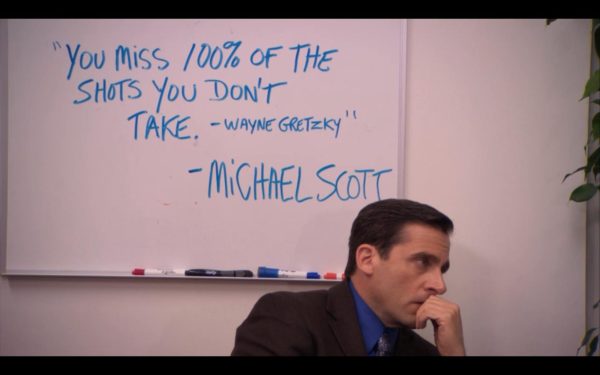Is it better to be interviewed first? Or last? Or somewhere in between?
When asked, I have usually defaulted to anecdotal evidence. Some say it is better to be interviewed first to leave a strong first impression and become the standard that all others must match.
Others say being interviewed first is not good. That’s because the interviewer still has that elusive “ideal candidate” in mind and you simply won’t be able to measure up.
What about being interviewed last? Some say this is a good idea so you can leave a strong, lasting impression with the interviewer. This may be especially valuable if they have interviewed several candidates through the day.
But others say last can be bad if the interviews are behind schedule and the employer must rush through your interview to finish on time.
There doesn’t seem to be conclusive evidence about the ideal interview time.
However, Daniel Pink’s new book When: The Scientific Secrets of Perfect Timing might shed some light. Pink points out that that most decisions we make about timing (like: What is the best time to be interviewed?) are based entirely on intuition and guesswork, which is the wrong thing to do.
He points out that most people go through a natural rhythm during the day: a peak, a trough, and a recovery.
The peak occurs during (roughly) the first seven hours of the day after waking up. This is the time when we do our best analytical and creative work. It is also the time when we feel happiest and warm toward others.
We then enter a trough (usually after lunch) when our happiness, warmth toward others, and ability to be creative decline. Surprisingly (at least to me), we then make a recovery through late afternoon and early evening.
What does this have to do with the timing of your interview? Maybe nothing; maybe something.
In his book, Pink gave several evidence-based examples that suggest how time of day can influence performance. For example, sleep-related motor vehicle accidents in the UK peak between 2:00 pm and 4:00 pm. And, the probability of a significant error being made during surgery is about 1% at 9:00 am but rises to 4.2% at 4:00 pm.
He also showed that parole board judges in the US granted parole about 65% of the time if someone appeared before them early in the day, and this rate declined to almost zero by early afternoon.
Pink’s research didn’t extend to interview times, unfortunately. But it might be a reasonable extension of his message to conclude that the order in which we are interviewed (first, second, last, etc.) has nothing to do with the outcome of the interview.
Instead, the time of day—and by default the interviewers’ mood, happiness, and alertness—might have a greater influence on how you are perceived.
Just a thought ….
